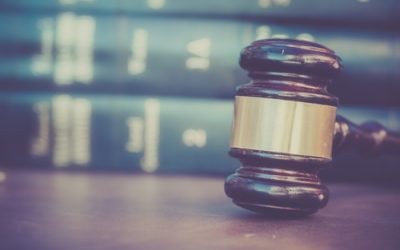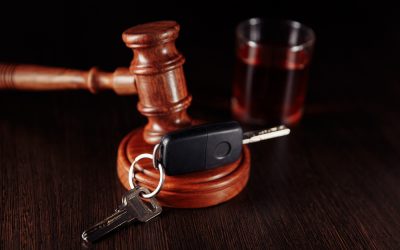According to CA Penal Code 1385 – Dismissal of Enhancements, the court system has the authority to dismiss a case or penalty enhancements if they believe it is in the best interest of justice to do so.
However, what does the best interest of justice mean? When can you convince a judge that your case being dismissed or penalty enhancement dismissal is the best thing for you, the court system, and society?
With help from an experienced Los Angeles DUI attorney, you may avoid the harsh criminal penalties associated with a conviction by utilizing this rare defense strategy.
When a Judge Dismisses a Case Under CA Penal Code 1385
Under California Penal Code Section 1385, the judge presiding over your case can dismiss it if they believe it is in the best interest of justice. They do not need to receive a request from your criminal defense lawyer to make this decision either.
However, judges utilize this option sparingly. In fact, judges may only consider dismissing a case in furtherance of justice if they receive a request from the prosecutor.
Some of the factors a judge will take into consideration when determining whether to dismiss a case based on CA Penal Code 1385 include:
- The defendant’s right to a speedy trial
- The impact on public safety
- The defendant’s right to cross-examine witnesses against them
- The defendant’s likelihood of rehabilitation
- The alleged victim’s rights
- Society’s right to impose criminal penalties
At the Judge’s Discretion: What This Means
Just because the prosecutor or your criminal defense attorney brings forward a motion under PC 1385 does not mean the judge will agree to dismiss your case or the penalty enhancements against you. The decision is at the judge’s discretion. This means the judge will need to consider the evidence in your case to determine whether dismissing your case is justifiable.
The rules and regulations surrounding motions under CA PC 1385 are strict. Your Los Angeles DUI lawyer cannot legally file an action under the statute. However, we can invite the judge to use their discretion to dismiss your case or the penalty enhancements you are facing.
How CA PC 1385 Works
Here is look at an example of how motions under California Penal Code 1385 work:
Suppose the prosecutor allows you to enter a pretrial diversion program or plea agreement. The prosecutor will then file a motion with the judge to dismiss the more severe charge in exchange for your guilty plea to a lesser offense.
A good example could be if you were initially charged with driving under the influence (DUI). The prosecutor might allow you to enter a plea agreement where you plead guilty to a wet reckless instead.
Ultimately, it is up to the judge to determine whether they should dismiss the charges against you. Even if the prosecutor is willing to dismiss the charges, if the judge determines it is not in the best interest of justice to do so, they have the authority to deny the district attorney’s motion.
What Is in the Interest of Justice?
You know the judge will consider whether dismissing the charges against you is in the interest of justice. As you can imagine, this could be subjective. Some of the factors the judge might take into consideration when determining whether you meet this requirement under PC 1385 include the following:
- Whether the charges are being dismissed as part of a plea agreement
- Whether the charges are being dismissed due to a lack of sufficient evidence
- Whether penalty enhancements are being dismissed as part of a plea agreement
- Whether the charges are being dismissed because the district attorney cannot move forward with the case
- Whether the charges are being dismissed due to lack of witness testimony
- Whether the plea agreement punishment is too light
- The nature of the charges against the defendant
The judgment also allows for the dismissal of penalty enhancements so defendants can meet the terms of a probation sentence or plea agreement. Once the prosecuting attorney files charges against you, despite their attempt to dismiss them through CA PC 1385, the judge must consider these factors carefully before deciding.
When Motions for CA PC 1385 Are Filed
Under the California Penal Code statute for dismissing charges or penalty enhancements, these motions are typically filed in exchange for a plea agreement.
However, certain sections of the statute allow the judge to dismiss penalty enhancements even after the defendant has been sentenced. This is true as long as the defendant was sentenced with penalty enhancements after January 2022.
Dismissing Penalty Enhancements
Revisions to CA Penal Code 1385 now require the judge to dismiss specific penalty enhancements if certain criteria have been met. These include:
- Multiple penalty enhancements – When numerous penalty enhancements are added to the criminal charges against you, the judge will be required to dismiss all but one penalty enhancement.
- Use of a firearm penalty enhancements – Penalty enhancements for the use of a firearm when the firearm was not loaded at the time of the offense can now be dismissed under subsection C of California Penal Code 1385.
These new subsections could allow you to avoid some of the more severe penalty enhancements associated with a wide array of criminal charges. Penalty enhancements, as with the Three Strikes law, could also allow you to escape sentences that would allow for 20 or more years in prison.
Contact a Los Angeles DUI Lawyer to Discuss Your Defense Options Further
Are you interested in determining whether the dismissal of penalty enhancements or the entirety of your case under CA Penal Code 1385 is a good fit for you? If so, make sure you contact a respected Los Angeles DUI attorney who will carefully analyze the circumstances of your case to determine which options are most suitable.
You can start working on your defense strategy as soon as you fill out our online contact form or call our office to schedule your confidential case review.







